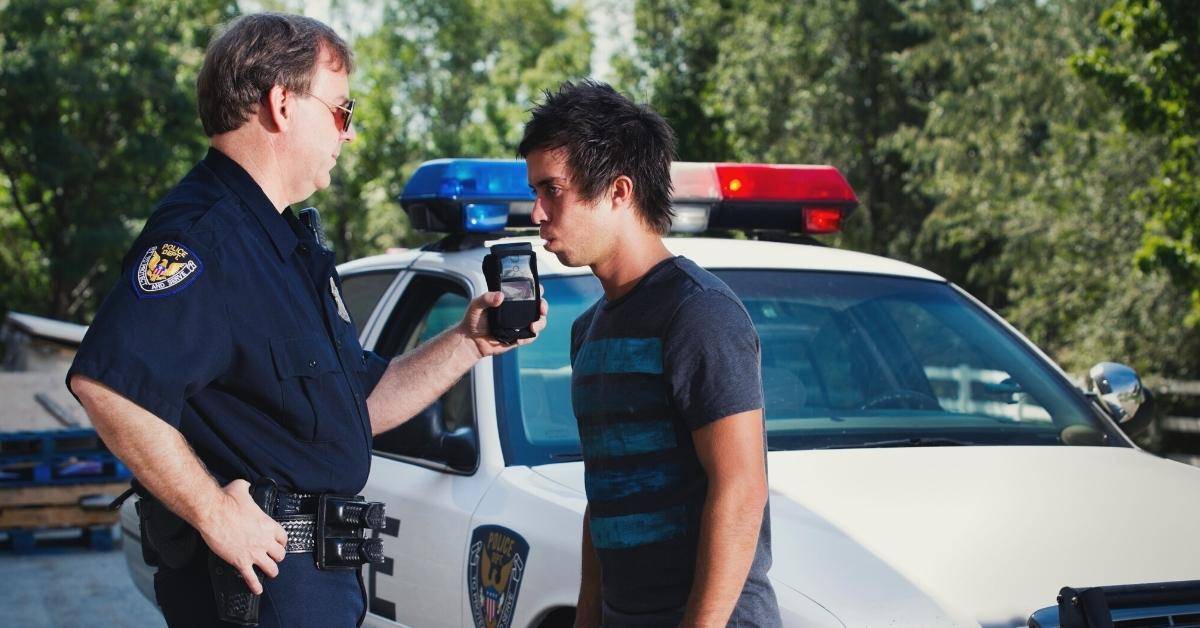Most any driving while intoxicated (DWI) stop in Texas will likely involve a breath test administered for the purpose of measuring an alleged offender’s level of intoxication. Breath tests are very useful for police officers and prosecutors alike because they are typically viewed as being hard proof of a crime having been committed.
People who fail breath test often assume that their guilt has been effectively proven and they will be doomed to face criminal penalties. The truth, however, is that breath test results could be thrown out in a number of cases for a number of reasons, which makes the importance of hiring an experienced criminal defense lawyer incredibly important.
DWI Breath Test Defense Lawyer in Denton, Frisco, Lewisville, Flower Mound, TX
If you were arrested for DWI in Denton, contact the Law Offices of Richard C. McConathy today for a consultation about your alleged (Focus Keyword) offense in Denton, Frisco, Lewisville, Flower Mound, and surrounding areas of Denton County, Texas. The Law Offices of Richard C. McConathy has a wealth of experience handling DWI cases all over North Texas.
Attorney Richard McConathy will know the best way to contest your criminal charges and work to get you a reduction or dismissal of criminal charges. Call the Law Offices of Richard C. McConathy today at (940) 222-8004 or contact us online for a free consultation about your case.
Implied Consent in Texas
Under Texas Transportation Code § 724.011, any person who is stopped for a DWI-related offense is deemed to have given consent to chemical testing of their blood or breath to determine their alcohol concentration level or levels of controlled substances or drugs in their blood by virtue of having been granted a driver’s license in Texas. This concept is also known as the state implied consent law.
Assumptions in Breath Test Cases
The first problem with breath test machines is that it makes many assumptions including:
- your temperature is normal when every degree of body temperature above normal will cause a 7 percent artificial increase in the reading;
- your “partition ratio” is 1:2100 when it actually varies from 1:1500 to 1:3400.
- your blood alcohol level has already peaked because if the breath test is conducted before the peak the reading can be up to 50 percent higher than your blood alcohol concentration;
- it is measuring alcohol when other solvents such as acetone and ketones are causing an inflated reading;
- it measures alcohol from the deep lungs when the alcohol might be coming from the stomach after a burp or belch which causes an inflated reading;
- it measures alcohol from the deep lungs when it might be measuring residual alcohol trapped in dental work or dentures which cause an inflated reading.
These problems and many others are well documented and even included in police training manuals. Defense attorneys are able to use all of these problems in court to show that just because the machine showed a breath test reading over .08 does not mean that the reading was accurate or reliable.
Errors in Breath Test Devices
Additionally, human error in operating or maintaining the machine is also a common problem. The defense attorney can move to suppress the results if the machine was not working properly or if the procedures set out to inspect, clean, and calibrate the machine were not followed properly.
Other common defenses presented at trial include an allegation that radio frequency interference (RFI) inflated the reading. All radio transmitters, including cellular phones and police radios, emit radio waves. Radio transmitters interfere with the breath test machines.
Although the machines have metal covers, RFI still occurs. In fact, the machine alerts the operator to RFI when it occurs. Because the manufacturer of the machine keeps the source code secret – there is no way to know how much RFI must occur before the machine produces the flag. The fact that the machine alerts to some instances of RFI do not mean that the machine is alerting to all instances of RFI that are inflating readings.
The Intoxilyzer 5000 often gives inaccurate, unreliable, or incorrect results. There are a variety of factors that can result in increased BAC readings, including, but not limited to, the following:
- The machine was not properly calibrated,
- The machine was not properly maintained,
- The individual who administered the test made a mistake,
- The individual who analyzed the test was not qualified to do so,
- The driver had a substance similar to ethanol in their mouth, like that found in toothpaste or mouthwash,
- The machine placed a substance in the driver’s mouth that skewed the reading, and/or
- The sample given by the driver was not tested against a control sample.
Denton Administrative License Suspension for DWI Breath Test Refusal
In Texas, individuals are permitted to refuse chemical testing of their blood or breath under Texas Transportation Code § 724.013, except in limited circumstances. A law enforcement officer is required to give an individual a breath or blood test, even if they refuse, if:
- Someone other than the driver suffered serious bodily injury, died or will die from a vehicle or boating accident,
- The officer has reason to believe the driver has been previously convicted of certain DWI offenses, and/or
- The driver was arrested for driving with a child passenger in the car.
If a driver refuses to submit to chemical testing of their breath to determine their alcohol concentration level, they can receive an administrative license suspension or revocation. This means that even if the individual is not arrested for DWI, their license will still be suspended for refusal. For a first DWI offense, the period is usually 180 days. If the individual has two or more previous DWI contacts, the suspension is typically for two years.

Suppress or Exclude Breath Test as Evidence
Since chemical breath tests, including the Intoxilyzer 5000, are often inaccurate and unreliable, your attorney may find a variety of defenses or factors that can result in suppressing the breath test evidence that is applicable to your particular breath test results. Some common defenses to breath tests in Texas can include:
- The law enforcement officer stopped your vehicle without probable cause,
- The law enforcement officer arrested you for DWI without probable cause,
- The law enforcement officer gave you a chemical breath test after you refused and no exceptions applied,
- As a woman, your lung capacity was not sufficient to give an accurate reading,
- The arresting officer failed to give you Miranda Warnings upon your arrest, and/or
- The arresting officer continued to question you after you were arrested and requested your lawyer.
Denton County Resources for DWI Breath Tests
Rodriguez v. State, 631 S.W.2d 515 ― This case was an appeal from a conviction for driving while intoxicated, where the court assessed punishment at thirty (30) days’ imprisonment and a $100.00 fine, probated. Rodriguez’s sole ground of error multifariously contended that the court erred in admitting into evidence testimony of the administration of a breathalyzer examination and the results because 1) he was not informed that the examination or its results could or would be used against him in court and 2) he did not consent to the examination voluntarily. The Court of Criminal Appeals of Texas, Panel No. 2 concluded that consent was presumed under Article 6701/-5, § 1, V.A.C.S. Article 6701/-5, § 1, supra, provides that any person who operates a motor vehicle upon a public highway in Texas is deemed to have given his consent to a chemical test of his breath if he is arrested for an offense allegedly committed while he was driving a motor vehicle under the influence of intoxicating liquor. Aside from the statutory presumption of consent, the evidence is uncontroverted that Rodriguez voluntarily consented to the breath test. The Court of Criminal Appeals held that the taking of the breathalyzer test is not a testimonial communication that Article I, § 10, Texas Constitution, or the Fifth Amendment, United States Constitution, seeks to protect. Therefore, the failure to give the appellant the Miranda warnings or the statutory warnings in Article 38.22, V.A.C.C.P., did not preclude evidence of the breath test and its results where there is no evidence that the appellant refused to take the breath test. The judgment was affirmed.
Growe v. State, 675 S.W.2d 564 ― Ivan Wayne Growe pled no contest to a charge of driving while intoxicated and was thereafter fined $300.00 and given a two-year probated sentence. After the appellant was transported to the police station, but before being charged, he was asked to submit to a chemical breath test. Appellant responded that he would not do so until he was able to consult with his attorney. He was then charged with the instant offense. Five minutes later, he asked the jail officer to arrange for the test anyway, but the officer did not respond. In his sole ground of error, the appellant now contends that the court should have dismissed the case because he was denied his right to counsel, and his opportunity via a chemical breath test to establish a defense to the charge. The Court of Appeals of Texas, Houston (14th District) held that under these circumstances, there is no limited right to counsel and accordingly affirm the judgment of the trial court. The court found that under the circumstances of this case no harm resulted to Growe as a result of his refusal, as no damaging evidence resulted therefrom. A limited right to counsel under these circumstances is not mandated either constitutionally or statutorily; and even if it were, there is no measurable harm resulting to the appellant therefrom.
Find A Denton County Defense Attorney for DWI Breath Test Charges | Law Offices of Richard C. McConathy
Contact the Law Offices of Richard C. McConathy today for a consultation about your alleged DWI Breath Test results in Denton, Frisco, Lewisville, Flower Mound, and surrounding areas of Denton County, Texas. Richard McConathy is an experienced criminal defense attorney who will make every effort to find applicable defenses in your particular case to have your charges reduced or even dismissed.
Contact the Law Offices of Richard C. McConathy right now at (940) 222-8004 or contact us online for a free consultation. We serve in Denton, Frisco, Lewisville, Flower Mound, and surrounding areas of Denton County, Texas.


